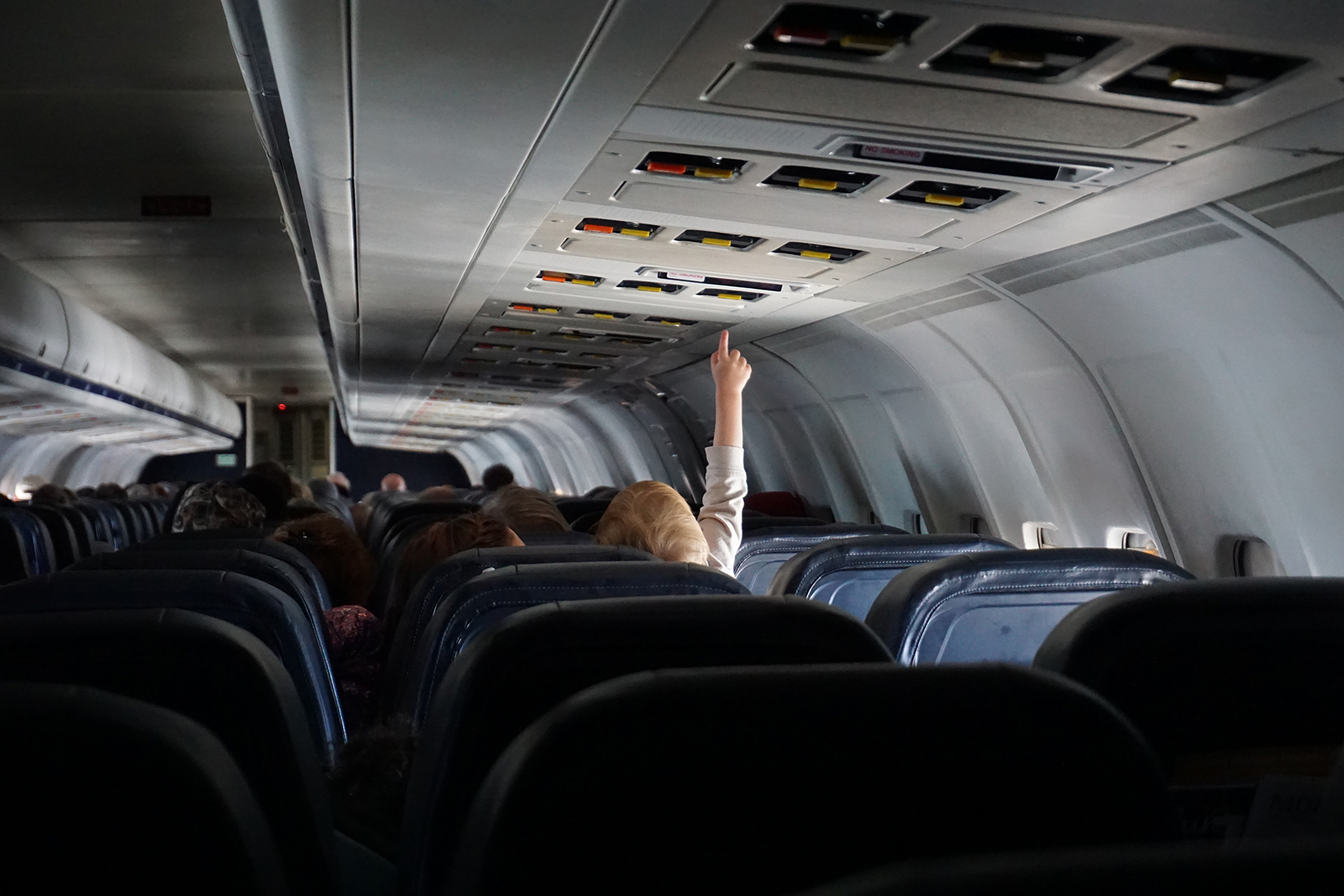
FLYING WITH CHILDREN
As I write this, I am currently sitting in my economy seat on a Boeing A380. I am making the 13-hour flight from Los Angeles back to Sydney after a wonderful time with friends exploring a country I’ve never ventured to before.
Here’s a solemn truth though, flying has always been hard for me. The anticipation and anxiety of the flight itself, the dreaded thought of hours of boredom, the stiffness, claustrophobia and the plane food i cannot eat… It’s a lot to overcome.
The experience of flying long or short haul is different for everyone though. Some dislike it and avoid flying all-together and for others, flying is an exciting, enjoyable experience, no matter the distance.
Personally, I tend to become overwhelmed and anxious when flying. Full disclosure, I may be a little claustrophobic, so sitting in seats next to people with no way of being to get out when I would like to and feeling restricted makes or breaks a flight for me. It’s important that I am able to get up regularly and move around as the change in air pressure has different impacts on my body. I never really spoke to anyone about what I was feeling whilst flying, I thought I was the only one who felt changes that made me uncomfortable. But the more I’ve began to open up about how i feel, the more I realized I wasn’t alone in this.
So let’s talk about the physical changes that flying brings to your body. For me, I experience earaches from the fluid moving in my inner ear and vestibular system, to increased bloatedness and pain in my stomach whilst remaining in an upright seated position for an extended period of time. Despite being somewhat uncomfortable as a result, I still make the choice to do long haul flights, reminding myself that the journey is worth it to get to the destination of choice.
Along with the physical changes, I also experience a range of emotional and social challenges whilst flying. I am quite observant and that can be somewhat detrimental as it’s hard to switch off during a flight. With concern about those around me, young children perhaps crying and even having to sit with my own thoughts – it can create an unhealthy environment mentally. As an adult, I have learnt to employee strategies to manage my own emotions and mental health on a flight. Watching a film, journaling, having a conversation here and there with those seated next to me to feel more comfortable, having playlists at the ready and trying to get sleep in to pass the time.
But what about how our children cope with the anxiety of flights? With the holidays fast approaching, it’s important to think about strategies to keep them happy whilst contained in a seat for a long period of time.
Keeping children physically and mentally entertained on a flight can be challenging. All the physical changes that I mentioned above can also occur in young people, so it’s important to prepare for physical and emotional discomfort.
So what is the best way to cope with this? And how can we prepare them for flights? How do we inform them and describe what is going to happen and why it happens in order to help them cope? And how do we help them through the physical and emotional changes in the moment?
Let’s begin with the discomfort that you may feel as a parent or caregiver. Let’s face it, we have all been on planes where children have cried, whinged or acted out. As parents, you try and soothe your child or tell them to stop as the engrained societal pressures, worries and expectations of what others think begins to cause undue stress. We begin to take on social anxiety whilst dealing with the physical or emotional discomfort of a child. In this moment of great discomfort, try to remember that these feelings aren’t permanent and that your child comes first. Your child is only expressing that they need help. We need to allow them to express themselves to help them work through their feelings in a positive manner to recover and be present for the rest of the flight.
Now let’s talk about some strategies to help you through the experience together. You may want to try;
- Preparation; Explaining what will happen, how long the flight may be but what the reward will be at the end.
- Layout the expectations, for example we need to sit for 3 hours in our chair, how do you think we could do this? What games, books or toys should we take?
- Physical discomfort; our ears may feel funny or blocked at take off and landing; the feeling is different for everyone. There are a few things to help our kids in this instance:
- Drink water before and during take off to help with swallowing and keeping the Eustachian tubes clear,
- Eating a fruit snack, chewing gum or foods and/or sucking on a candy to increase swallowing and keeping the Eustachian tubes in our ears open,
- Practice our yawning and pretend sleeping games; it helps equalize the pressure in our inner ears,
- If you have or are prone to ear infections, see a doctor beforehand to ensure safety when flying as it can be very painful for our kids and their ears,
- Staying awake at prime times; staying awake during take off and landing will help with swallowing, if your child is sleeping, they may not swallow as much and could wake up in pain,
- Let them cry; believe it or not letting our children cry for a few moments actually relieves the pain for their ears and helps equalize the pressure. Soothing them and comforting them too will help them in moving past this uncomfortable feeling faster, and
- Most importantly, be kind to yourself – you’re doing the best you can. And so is your child! This experience may be very new and unfamiliar to your children, so comfort them and where possible make them feel at home in the space.
The end of the year is nearing. We are all planning our Christmas / New Year holiday adventures. Don’t be afraid to fly and travel if you can. Don’t let what other people think or say stop you from living the life you want to live and going somewhere you have always wanted to go.
I cannot wait to hear about all the holiday adventures being planned for the Christmas and New Year holidays and I hope that the above strategies are helpful in keeping your children calm and enjoying a wonderful holiday period!
Jess.
ORIGINALLY PUBLISHED NOVEMBER 6, 2019
Latest Posts
- The Power of Play: Supporting Transitions in Your Child’s Development

- OT Week: Celebrating 80 Years of Connection – 21st to 27th October (Week 3, Term 4)

- Nurturing Early Sensory Development: The Critical Role of Suck-Swallow-Breathe Synchrony in Infants

- Empowerment Through Adolescence: Navigating Puberty with Confidence and Support

- Fine-Tuning Foundations: Nurturing Essential Fine Motor Skills


Leave a Reply